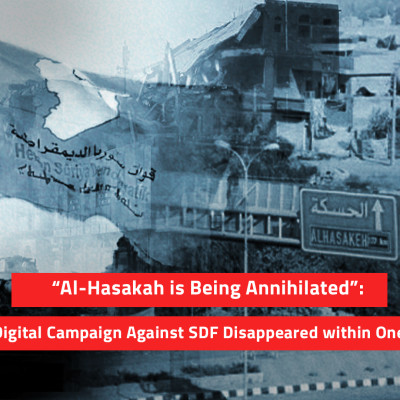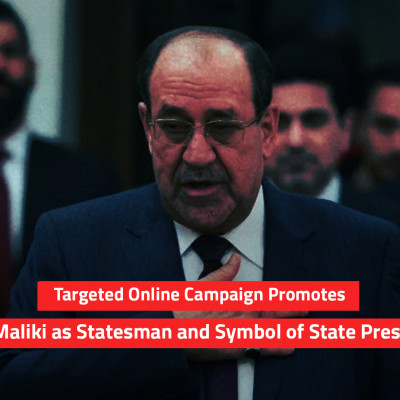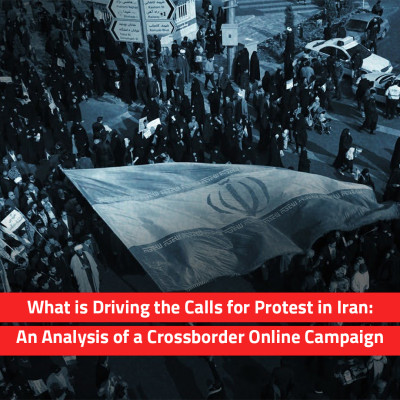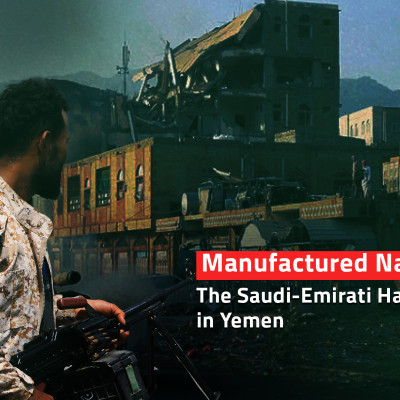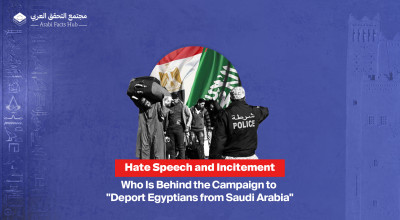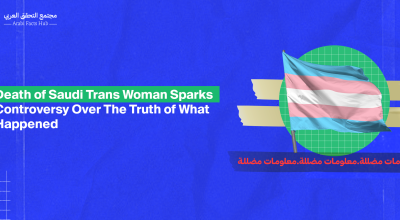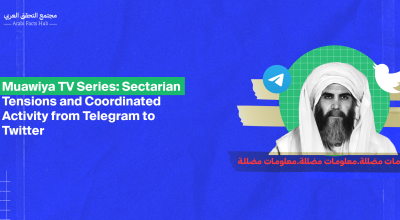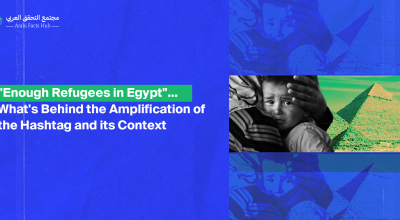Cyber Wars Around Riyadh Season Amidst War on Gaza
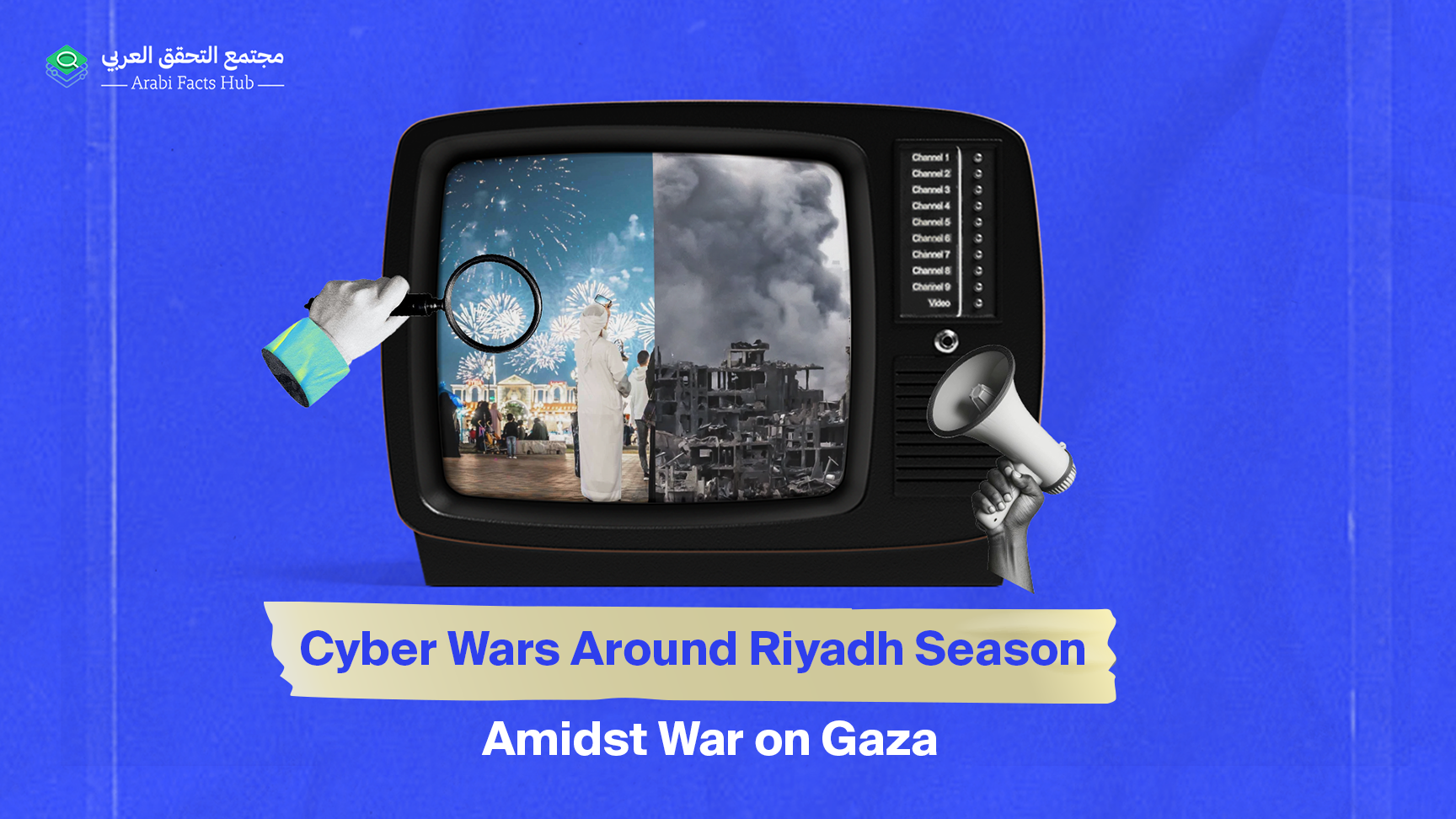
Cyber Wars Around Riyadh Season Amidst War on Gaza
The analysis of social media content reveals coordinated campaigns to defend Saudi Arabia for organizing the Riyadh Season amid the Israeli war on Gaza. Cyber armies, suspicious accounts, and specific hashtags have participated in these campaigns, influencing public opinion and highlighting the connection between capital authority and popular and political stances in both Egypt and Saudi Arabia.
The launching of the Riyadh Season entertainment event, concurrent with the war on Gaza, ignited widespread criticism against the Kingdom of Saudi Arabia and Turki Al Al Sheikh. The event faced significant backlash for the absence of solidarity with Gaza and its residents. Some accused its organizers of attempting to overshadow the Israeli war, especially as many analyses suggested that Hamas' attack on Israel on October 7th was aimed at hindering normalization efforts between Saudi Arabia and Israel.
The cyberspace and social media platforms have become filled with a multifaceted struggle, with some campaigns defending the Kingdom, while others attack it. The axes of these campaigns involve Saudi Arabia, Egypt, and Yemen. The hashtags used in these campaigns gathered hundreds of thousands of tweets, shared by tens of thousands of accounts, some of which have a long history of engagement in promotional campaigns.
Gaza Eradicated, Riyadh Celebrating
The hashtag #Gaza_Eradicated_Riyadh_Celebrating first appeared on October 28, generating 449,861 tweets with an average of 32,000 tweets per day. The hashtag's posts generated over 1.3 million interactions across various platforms, averaging more than 94,000 daily interactions.
The majority of the posts were on the X platform (formerly Twitter), originating from 34 countries. These tweets were viewed by over 71.5 million people, within a potential reach of around 74 million people, according to Meltwater statistics.
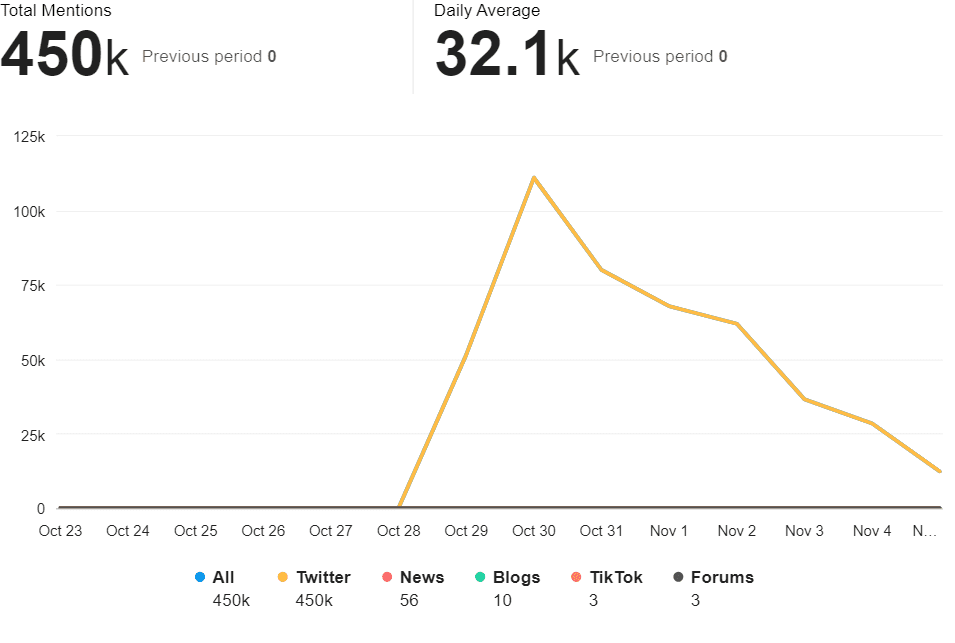
The sentiment analysis of the hashtag revealed that 59.9% of the posts had a negative tone, while 23.3% were positive, and 15.3% were neutral, according to Meltwater's analysis of emotional and impression segments in the hashtag across various platforms.
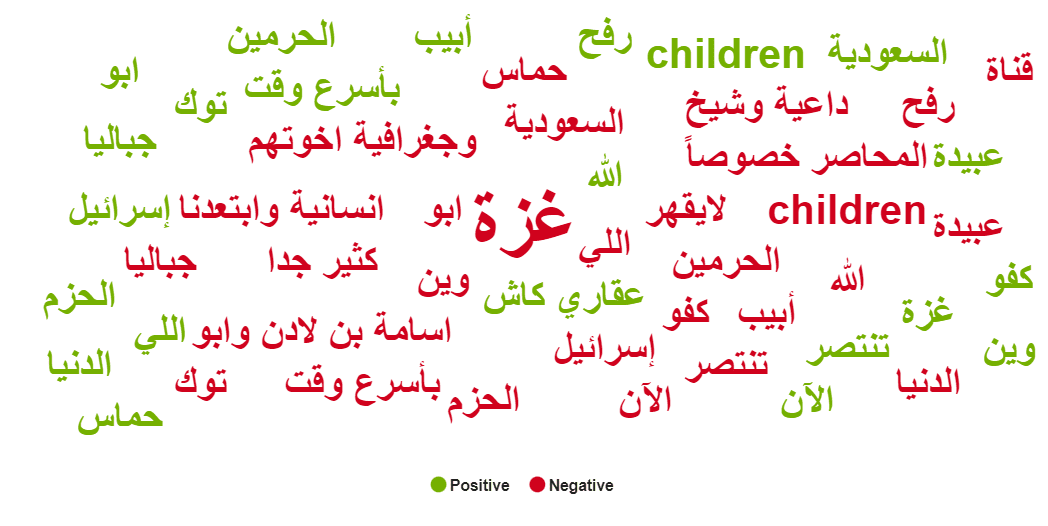
A significant percentage of the posts, totaling 309,000 tweets, originated from accounts with an unknown geographic location, indicating a substantial level of manipulation in the hashtag activity. Saudi Arabia topped the list in terms of tweet density on the hashtag, followed by Egypt and Algeria, while India ranked last.
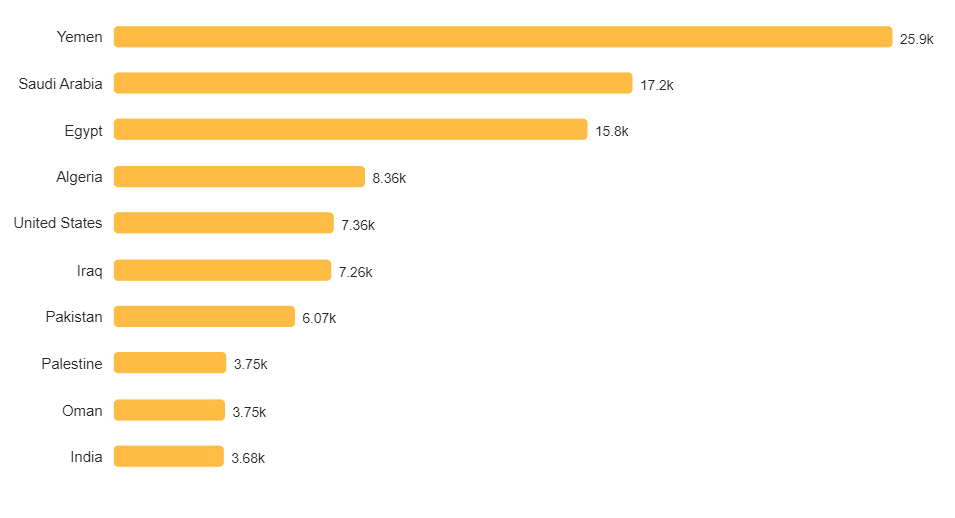
Until November 7th, 220,619 accounts participated in the tweeting wave, and specific accounts played a significant role in amplifying and promoting the hashtag. The list included prominent virtual personalities, such as Yemeni journalist Anis Mansour, a key figure in electronic campaigns closely associated with the Reform (Muslim Brotherhood) movement in Yemen. Also, the account "Huna Aden" and Mukhtar Al-Rahbi, the former press secretary of the Yemeni presidency, advisor to the Minister of Information, and chairman of the board of directors of Al-Mahrah TV channel, were part of the list. Additionally, Saleh Mansour Al-Yafei, the editor-in-chief of Al-Moshahed website, and Hamza Al-Hassan, a member of the so-called "Leadership Committee" in the opposition "Meeting" in the Arabian Peninsula, were included.
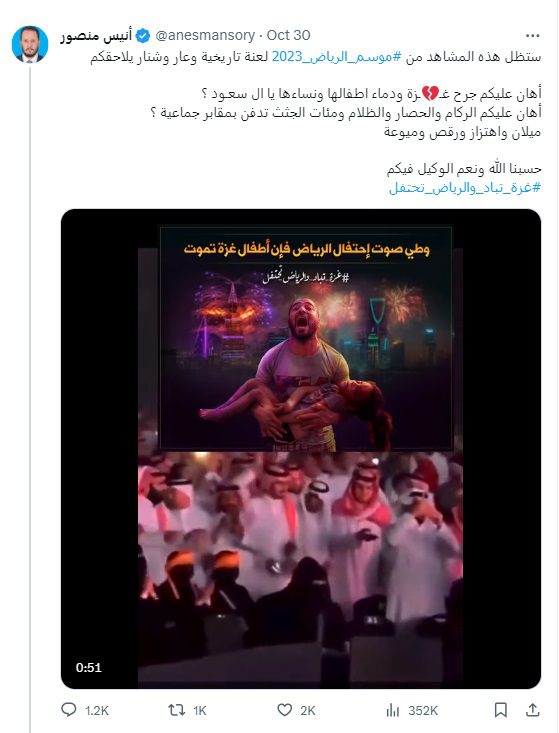
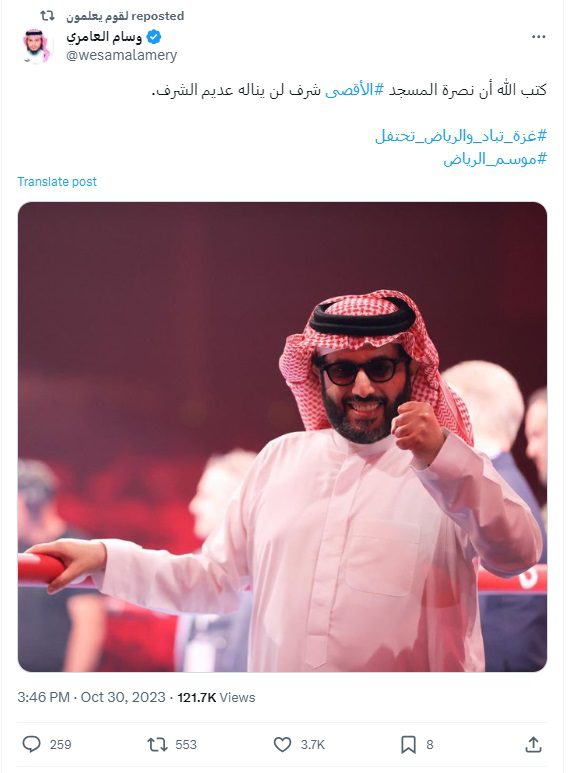
Egyptian actor Amr Waked, Egyptian journalists Moataz Matar and Osama Gawish, Kuwayti Quran reciter Mishary bin Rashid Al-Afasy, the Lebanese journalist closely associated with Hezbollah Hussein Mortada, the controversial Israeli influencer known for spreading misleading information, Edy Cohen, and the influencer Turki Al-Shalhoub, all participated by posting original tweets or retweeting posts by others.
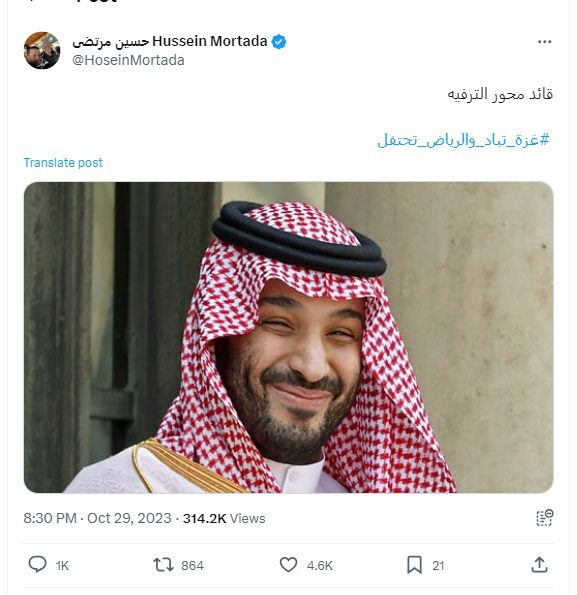
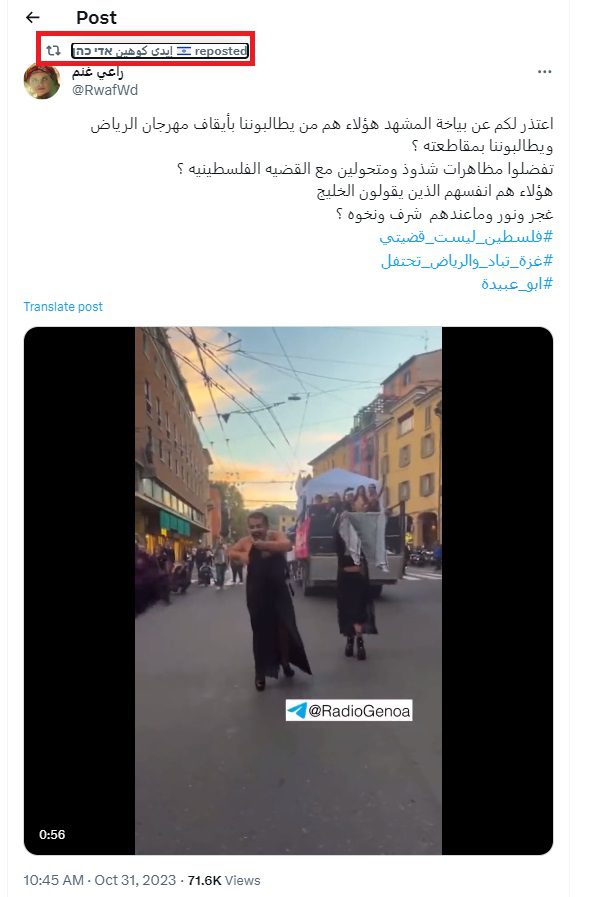
Yemen Active on Telegram
There was coordinated activity from the channel "Al-I'lam Al-Sha'bi Al-Yamani" (Yemeni Popular Media), one of the Houthis’ channels on the Telegram messaging app. This platform is often used for coordinating Houthi cyber campaigns, in addition to sharing media content related to regional powers aligned with Iran before it appears on other platforms.
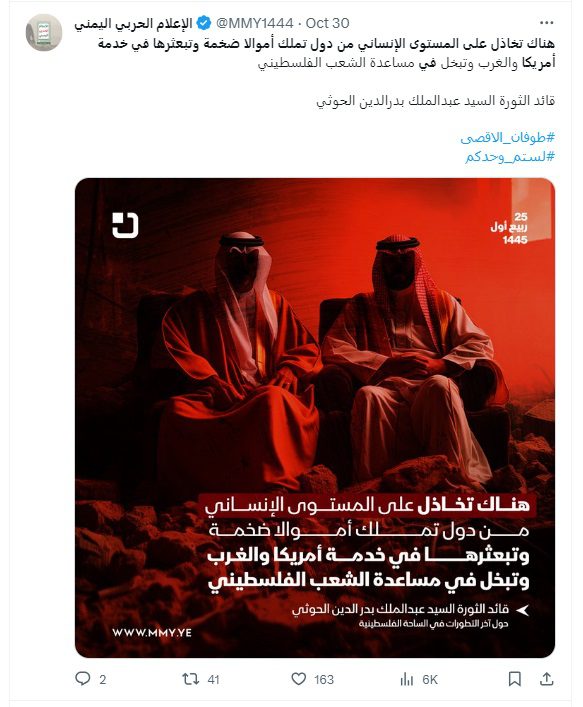
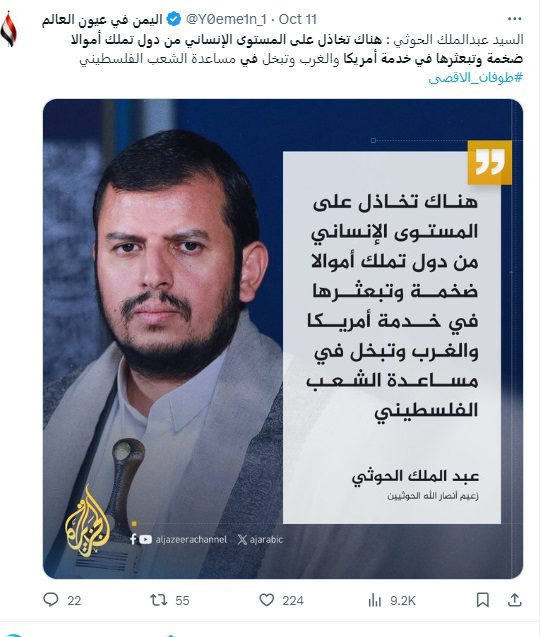
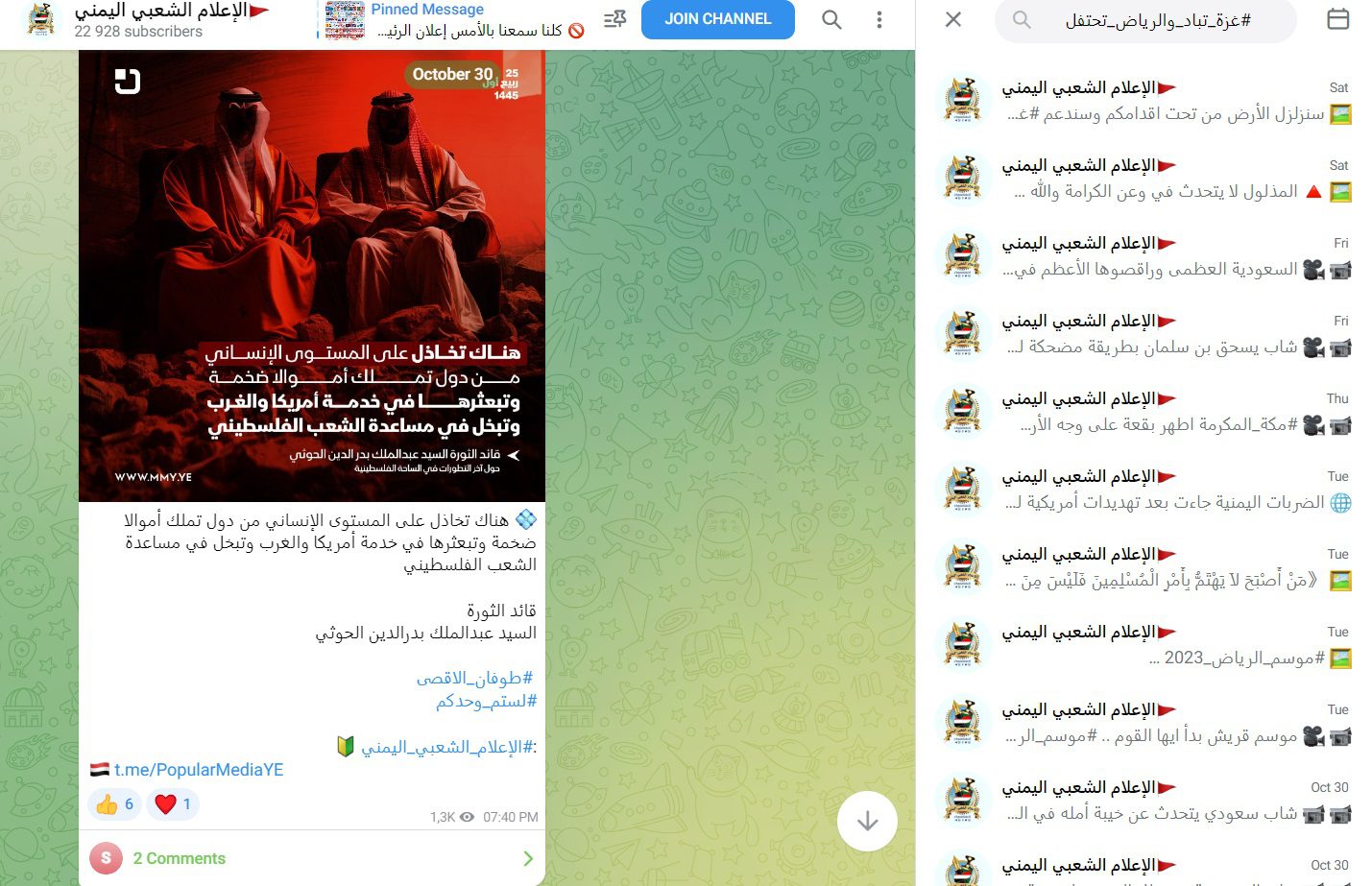
In the "Al-I'lam Al-Sha'bi Al-Yamani" channel, we observed 16 posts, stickers, and visual content that were later published by Houthi-affiliated Yemeni accounts on Twitter, consistently and in a coordinated manner. The nature of the activity of some of these accounts suggests they are likely automated or fake, not owned by real individuals, and there are also verified blue checkmark accounts involved.
In the screenshots below, the Houthi channel used a visual report from Al-Manar, the media outlet affiliated with Hezbollah, about Riyadh Season, while coordinating the dissemination of posts through the hashtag. They also engaged in sharing content from other media personalities and influencers associated with the group or Hezbollah.
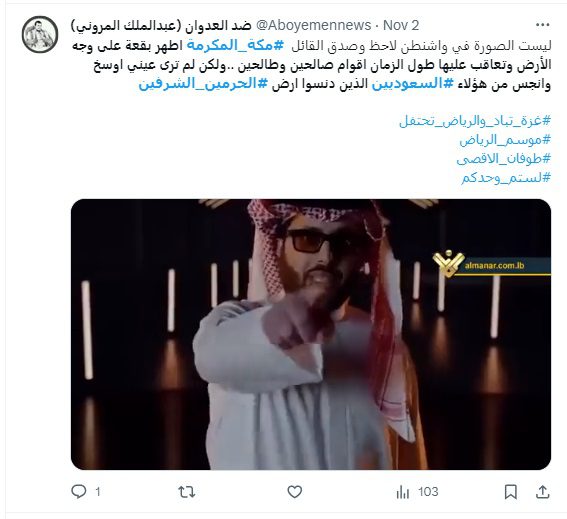
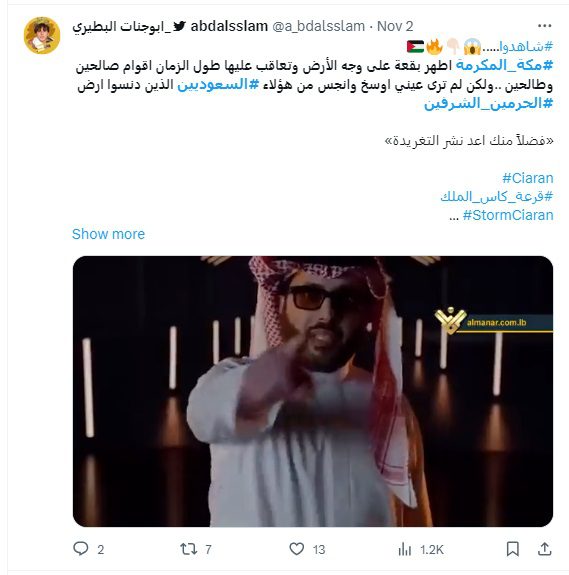
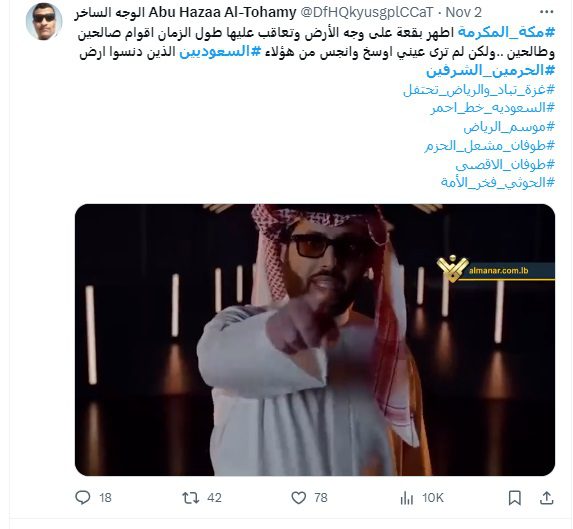
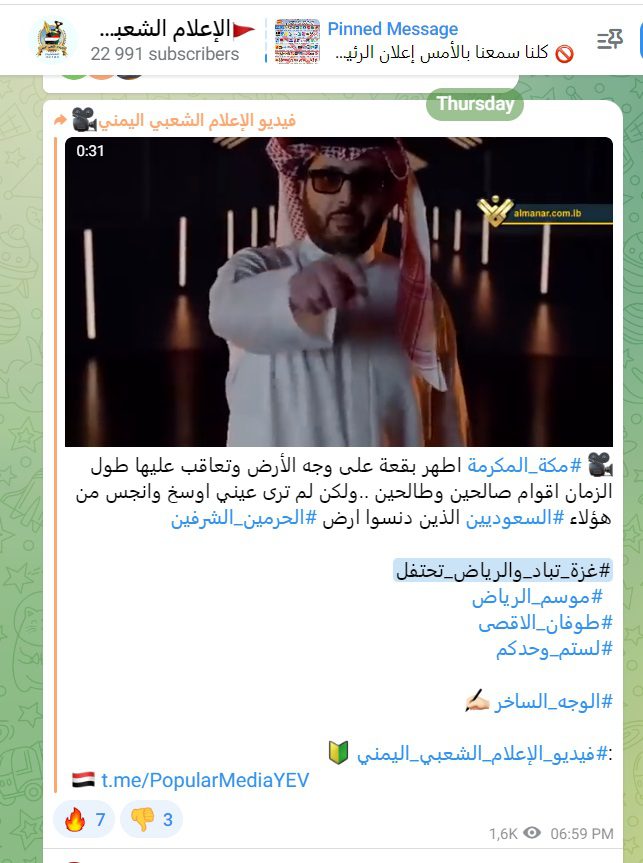
The channel, with approximately 23,000 subscribers, also contributed to promoting satirical cartoons related to the hashtag, including those from Yemeni cartoonist Kamal Sharaf.
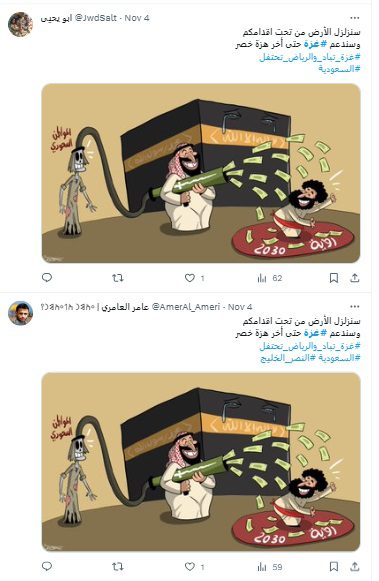
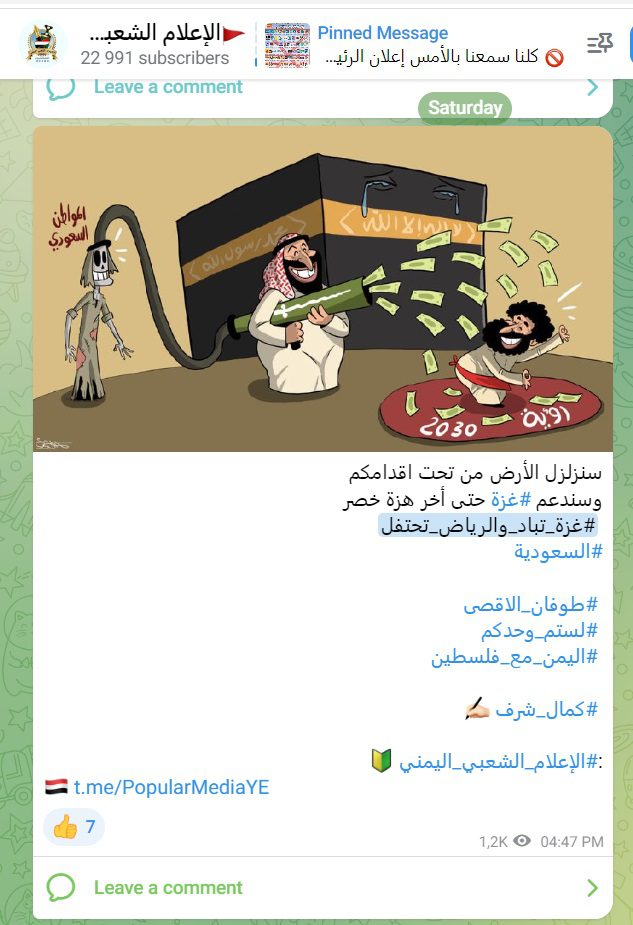
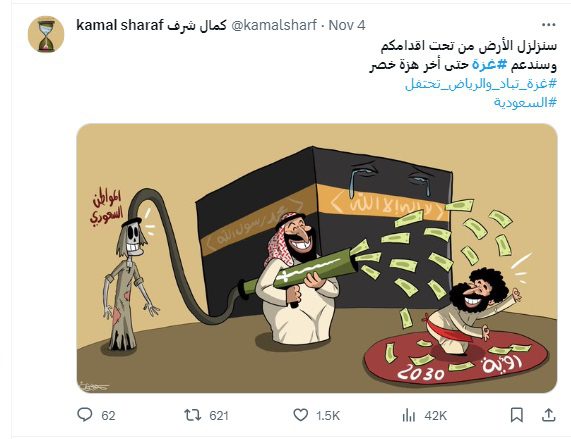
Saudi Counter-Attack, from the Archive
Egypt ranked third after Yemen and Saudi Arabia in terms of the volume of tweets related to the hashtag #Gaza_Eradicated_Riyadh_Celebrating. It seems that the entities known for their promotional campaigns for Saudi official positions wanted to launch a counter-campaign against Egypt in response to the first hashtag remaining in the trending topics for several days in the Arab region. This was exacerbated by the controversy surrounding actor Mohamed Sallam's apology for participating in the play "Artificial Marriage" during the Riyadh Season.
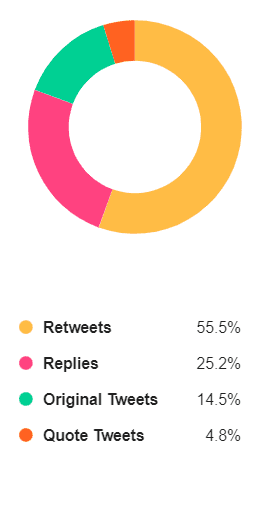
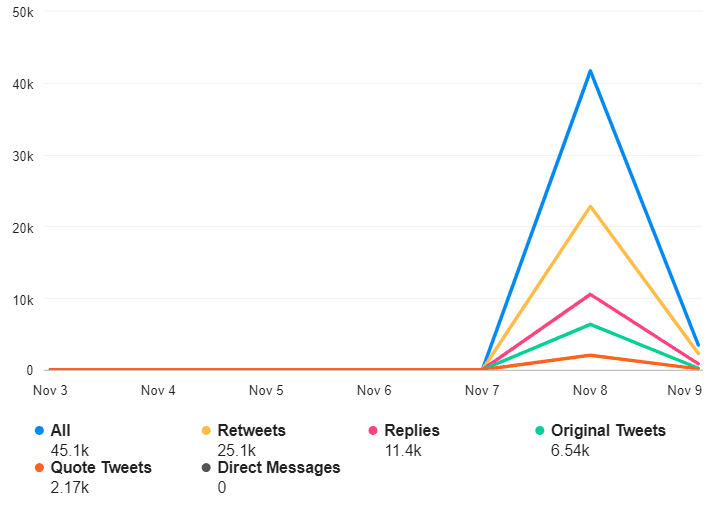
On November 6th, the pace of tweeting on #Gaza_Eradicated_Riyadh_Celebrating began to decline, according to Meltwater indicators. On the same day, a similar hashtag emerged, #Gaza_Eradicated_Egypt_Celebrating. Until the morning of November 9th, there were 45,117 tweets on the second hashtag, with 55.5% of them in the form of retweets. The hashtag was seen at least 9,993,000 times and had a potential reach of 24 million people.
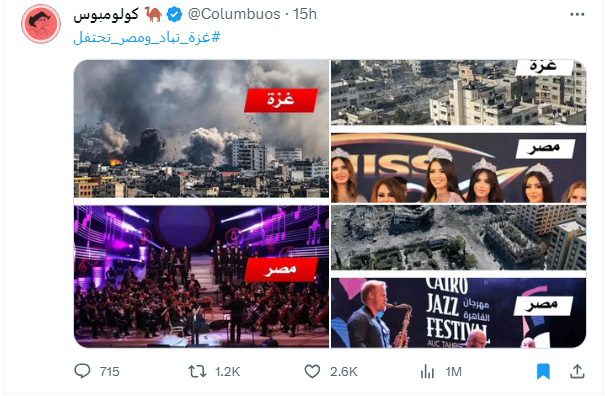
The hashtag #Gaza_Eradicated_Egypt_Celebrating was actively promoted and amplified by Saudi accounts, some of which are considered "patriotic." They are associated with the "MBS Electronic Army," a prominent player in inauthentic activities, phishing campaigns, and smear campaigns against critics of the Kingdom on social media. For example, the account named Columbus used the hashtag and shared images combining scenes from the tragic situation in Gaza with Egyptian events, some of which occurred eight years ago.
Columbus has over 524,000 followers. His posts often praise Saudi Arabia, and are critical of Palestine, Turkey, Iran, the Muslim Brotherhood, and Islamic movements.
It's worth mentioning that the X platform temporarily suspended Columbus' account in October 2022. The account has previously launched campaigns urging Saudis to boycott Lebanon and Turkish products during diplomatic disputes between the two countries.
Another account, Dalal AlSabr (@dalal_sa23), played a role in activating the campaign, especially since it is followed by well-known Saudi figures such as the writer Turki Al-Hamad, Sakina Al-Mashkhas, and the Saudi military commentator Suleiman Al-Dosari. According to our monitoring, the X platform suspended and disabled many accounts associated with Dalal AlSabr after "political" tweets. Dalal has previously participated in phishing campaigns and online battles with Palestinian accounts.
These accounts adopted a mocking method in their counter-blogging campaign, using archival video clips from the internet and presenting them as related to current events. For example, they summoned footage of people dancing during the summer season on the North Coast, presenting it as happening "now." They also published advertisements for elite events that usually have very limited public attendance.
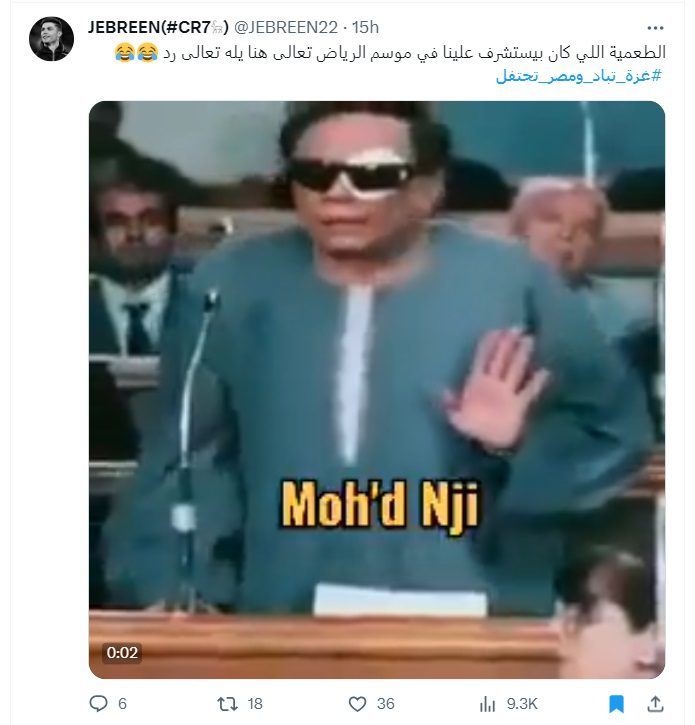
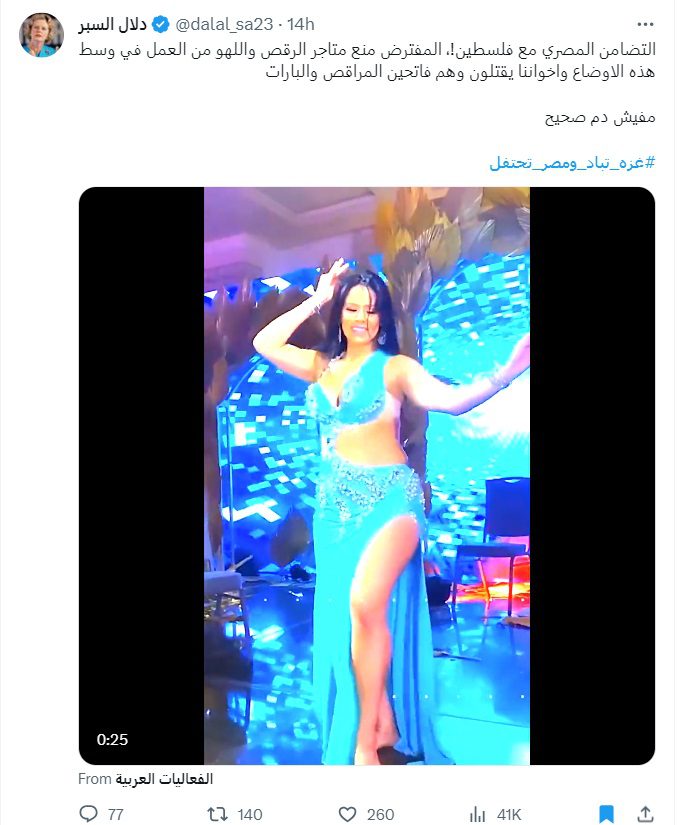
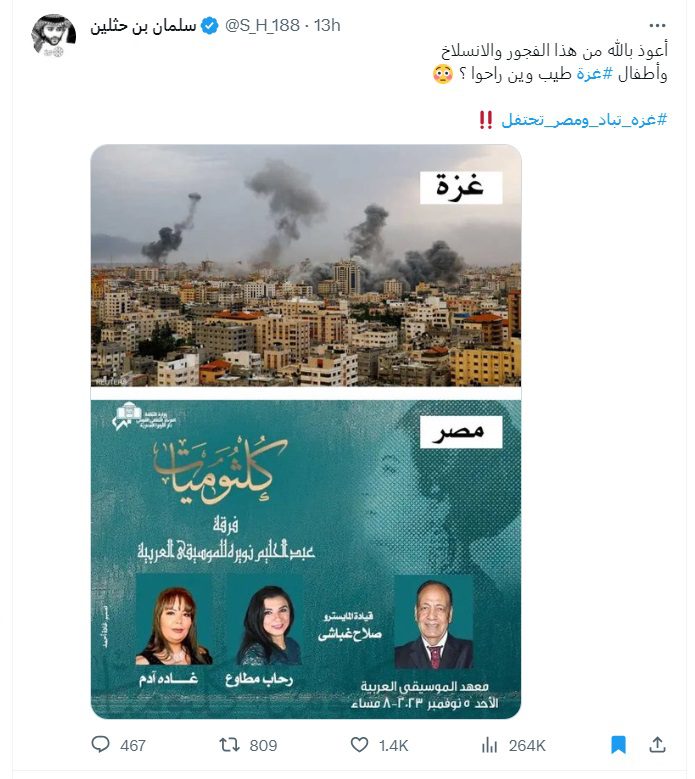
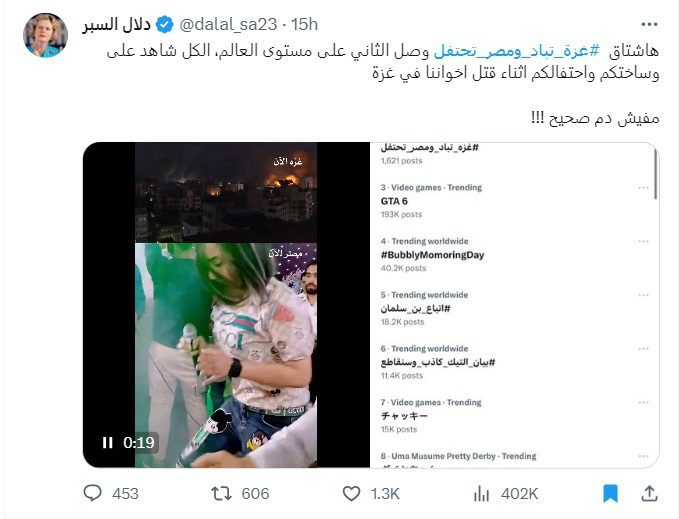
Mohammad Sallam, Bayoumi Fouad, Mortada Mansour: the power of capital and the price of sympathy
The refusal of Egyptian actor Mohamed Salam to participate in the play "Artificial Marriage" as part of the Riyadh Season sparked contrasting opinions. His colleague, Bayoumi Fouad, did not hesitate to criticize him while defending the play in Riyadh, emphasizing that the reason for its continuation is the presentation of Egyptian art, not "money." These comments led to a campaign of criticism and attacks on Fouad, forcing him to close his Facebook page.
Social media witnessed a heated debate either defending or criticizing Fouad, along with an attack on Saudi Arabia for not postponing the Riyadh Season. The Saudi press also joined the debate, as prominent newspapers "Okaz" and "Al Riyadh" published opinion articles and news about Egypt and the Riyadh Season.
Opinion articles maintained a calm tone regarding the strength of the relationship between Egypt and Saudi Arabia. However, they harshly criticized critics of the Season, sometimes labelling them “Schizophrenics” who as Khaled Al-Suleiman did in his article titled "Riyadh Season... In the Eyes of its Blind," published in "Okaz" on November 8th. Al-Suleiman began his article by saying, "After returning from Haram Street to his home in the early morning, he picked up his mobile phone and began thinking about writing a text criticizing Riyadh Season, intending to publish it on Facebook or Twitter X. For him, the events in Gaza unfold in a virtual world of social media and not in the reality that is only 462 kilometers away from Gouna and 348 kilometers from Haram Street!"
Al-Suleiman stated that these individuals "do not have a real impact on the reality of the matter, and experiences of decades of campaigns they launched against Saudi Arabia have not achieved anything significant. The titles have varied, and times have changed, yet they found resonance only among the audience and media of the Arabic slogan shops, which specialize in the trade of hollow vocal phenomena!"
Another an article titled "If Riyadh Shines, Cairo Will Not Dim" by the writer Mohamed Al-Saeed was published in the same issue of the newspaper. He expressed, "It is incomprehensible that such an intense attack comes from some who are considered affiliated with the sisterly Egypt."
He continued, "If these were just transient posts on the 'X' platform, we might say they are fake identifiers moved by external hands with the aim of sowing discord between the two peoples. However, there is a huge amount of extremely offensive messages to Saudi Arabia in both voice and image - and the unspoken ones - spreading on social media, carrying a hateful and vulgar language that is entirely unacceptable."
Al-Riyadh newspaper celebrated the launch of the Saudi hashtag #WeAreAllBayoumi, expressing support and solidarity with the Egyptian artist Bayoumi Fouad after the insults he faced. It emphasized that the attacks came as a result of his “positive and noble stances,” particularly regarding his participation in the Riyadh Season and his comments during the play "Artificial Marriage," from which the actor Mohamed Sallam apologized for his participation.
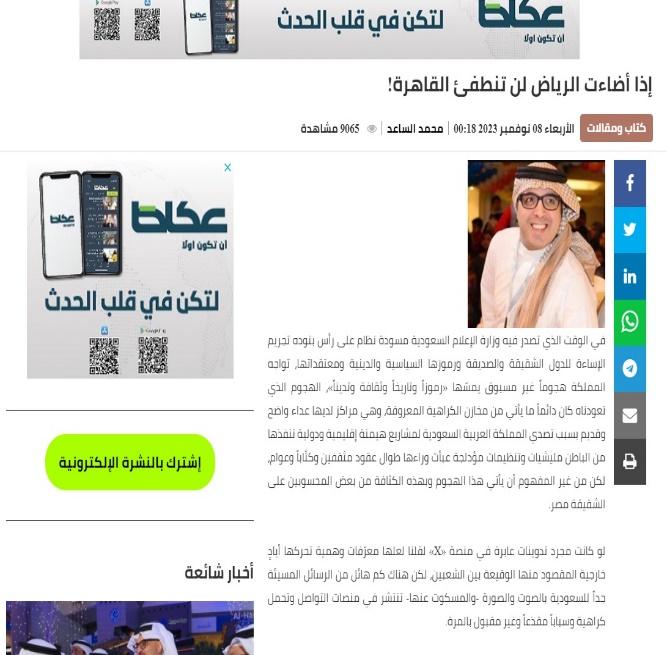
.jpg)
#WeAreAllBayoumi garnered at least 76,000 tweets, with 51,000 of them coming from accounts with unknown geographic locations. This indicates the presence of potentially inauthentic activity within the hashtag. A total of 39,000 accounts participated in writing tweets using the hashtag.
.jpg)
Notably, the same accounts that participated in amplifying the hashtag #غزة_تباد_ومصر_تحتفل (#Gaza_Eradicated_Egypt_Celebrating were involved in Fouad’s hashtag. An example Columbus, who wrote: "I urge everyone to support this brilliant artist by participating in this hashtag and following his account. He is facing a smear campaign because he mentioned Saudi Arabia and Saudis positively. Bayoumi will remain the artist and the man who loves us, Egypt, and all the honest people in Arab nations."
This tweet was seen at least a million times and gathered thousands of interactions.
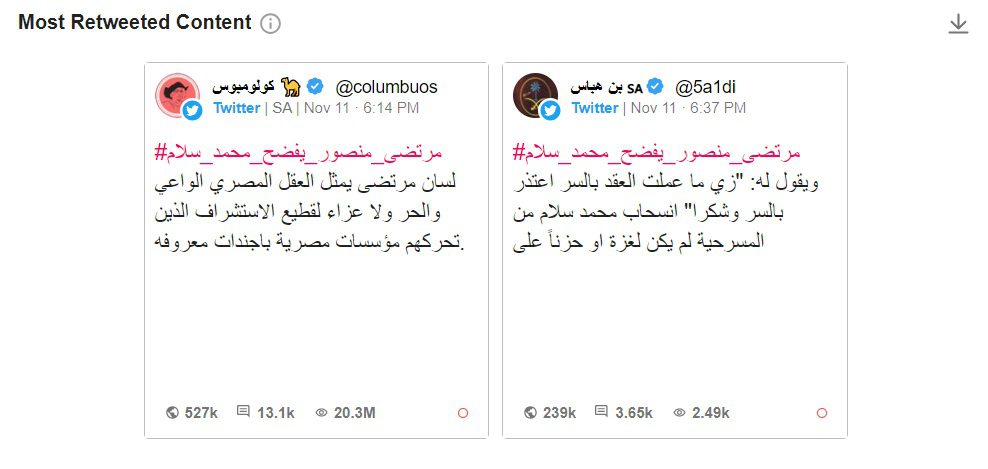
Mortada Mansour, former president of Zamalek Sports Club, weighed in. A close associate of the head of the Entertainment Authority, Turki Al-Alsheikh, Mansour’s comments usually stir up a buzz on social media. However, his criticism of Sallam was followed by the emergence of a new hashtag attacking the artist.
On November 11th, Mansour's account posted a video titled "From my perspective, it's not the time to settle scores... The story of Mohamed and Bayoumi Fouad." He stated, "Mohamed, you should apologize in secret, just like you signed the contract and received the commission in secret, because we're not here to create a scene."
He also added, "You've embarrassed anyone who might work with you. If he works in a theater in Egypt and makes people laugh, that's fine. But this is about Riyadh. If he works in Tunisia, or goes to the Jerash Festival, he becomes a traitor. That's why your colleague Bayoumi Fouad, whom I don't really know much about, is labeled as a traitor, an agent, as if he's the one harming our children because of you and what you did to your colleagues."
Mansour's video garnered 116,000 views and thousands of interactions on TikTok. After hours of the video being broadcasted, early on November 12th, the hashtag #MortadaMansour_Exposes_MohamedSallam appeared, collecting at least 21,887 tweets, viewed at least 24 million times, with an additional 14 million potential views, according to Meltwater statistics.
An analysis of the hashtag's content reveals that specific hours were the most active, particularly at 1:12 AM on November 12, and at 6:50, 7:36, 9:13, and 9:34 in the morning of the same day.
In addition to 14,000 tweets posted by accounts with unknown geographic locations, Saudi Arabia ranked first in terms of the number of tweets with 4.5 thousand tweets, followed by Egypt (975), and Yemen came in third (245). Regarding the type of tweets in the hashtag, content resharing through retweets or reposts accounted for 69%, replies for 19%, original tweets (those not in the form of retweets or replies) for only 7.2%, and quoted tweets for 4.9%, according to Meltwater.
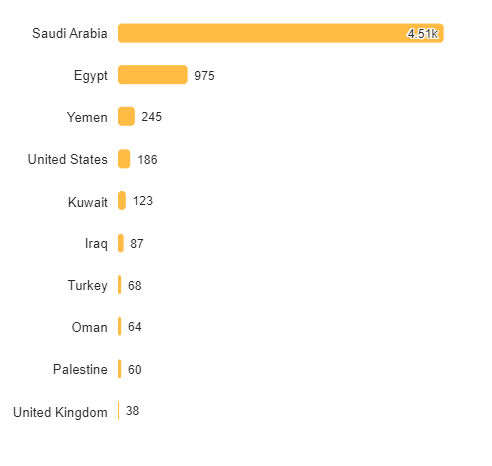
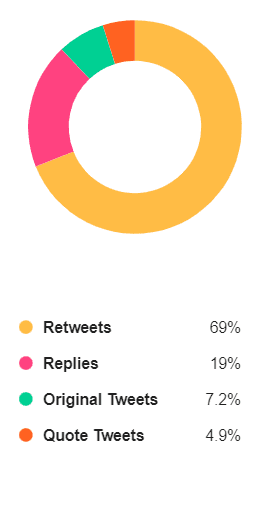
.jpg)
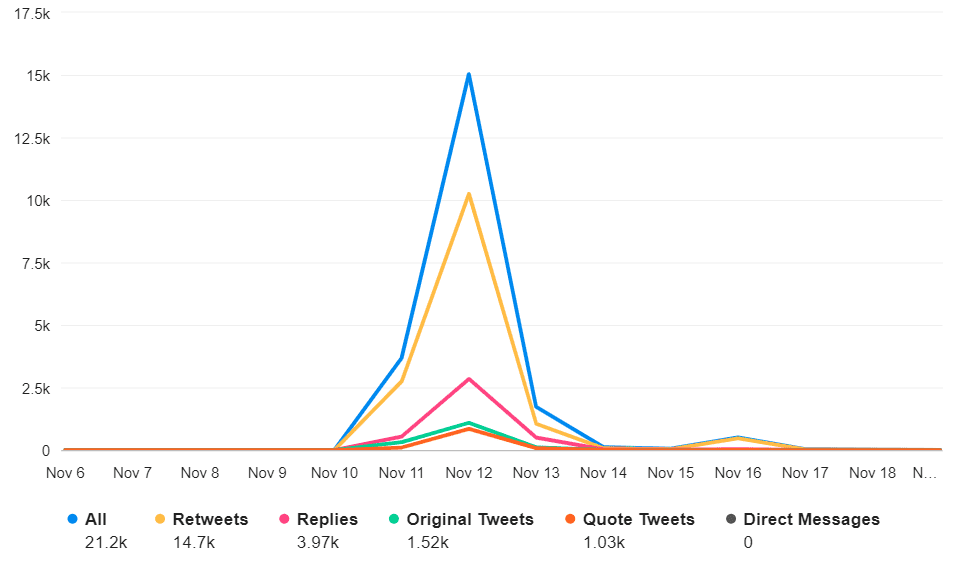
At least 13,621 accounts participated in the wave of tweeting under the hashtag Mortada Mansour, and the accounts with a large number of followers were notably influential. Some accounts stood out for using paid verification badges on the X (Twitter) platform.
Certain accounts displayed the flag of Saudi Arabia or images of the Saudi monarch, King Salman bin Abdulaziz, or Crown Prince Mohammed bin Salman. Some included hashtags like #Great_Saudi_Arabia and #Saudi_Arabia_is_a_red_line in their bios, following a common practice among nationalistic-toned accounts participating in online campaigns.
Some of these accounts have been active for years, but only gained prominence during virtual conflicts between Egyptians and Saudis. An example is the account Arab Orientalists @3rbscandal, which has around 700 tweets since its creation in 2017. The account has focused on attacking Egypt and Egyptians through various hashtags.
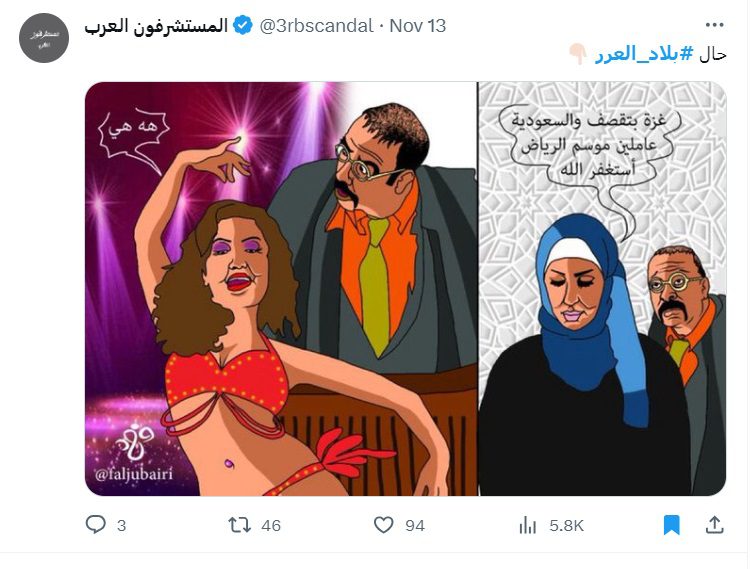
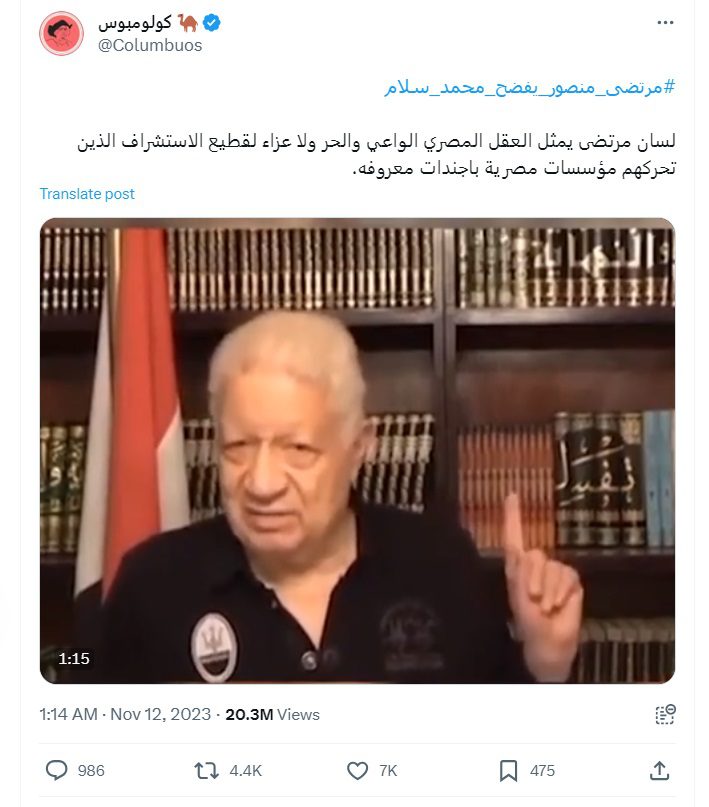
It's worth noting that some of the accounts using the hashtag did not necessarily publish tweets supporting the prevailing aggressive tone. Some opted for a completely different discourse. For instance, the account of Noora Al-Harbi was referenced in discussions about events in Gaza, while other accounts utilized it to criticize the Egyptian government, like the account Occupied Egypt.
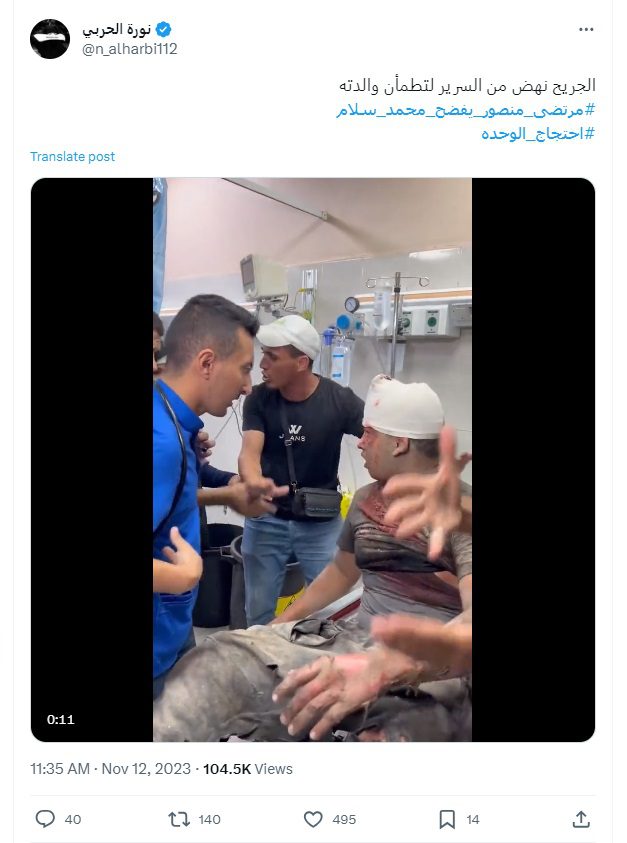
From Ghala and Sara to Columbus
The first tweet on the hashtag #MortadaMansour_Exposes_MohamedSallam was posted from Columbus. The tweet reads: "Mortada's words represent the conscious and free Egyptian mind, and there is no condolence for the herd of the observers moved by Egyptian institutions with known agendas."
The tweet, which included a video of Mortada Mansour, was viewed more than 20.3 million times and generated over 12,000 different interactions. It also prompted at least 5,000 accounts to tweet using the hashtag, according to Meltwater.
.jpg)
Over the past years, an Arab account appeared, carrying the name of the famous explorer Christopher Columbus. The account identifies itself as "a person who loves discovery by focusing on the counter-media and discovering the hidden truth about nations, to spread awareness and elevate our glorious nation (Saudi Arabia)."
The account appeared on the X platform (formerly Twitter) on June 16, 2015, but its identity changed several times before becoming Columbus, who has 531 thousand followers. When we examined the content archive of the account during its early years, the tweets were deleted, but reading the interactions of other people was revealing.
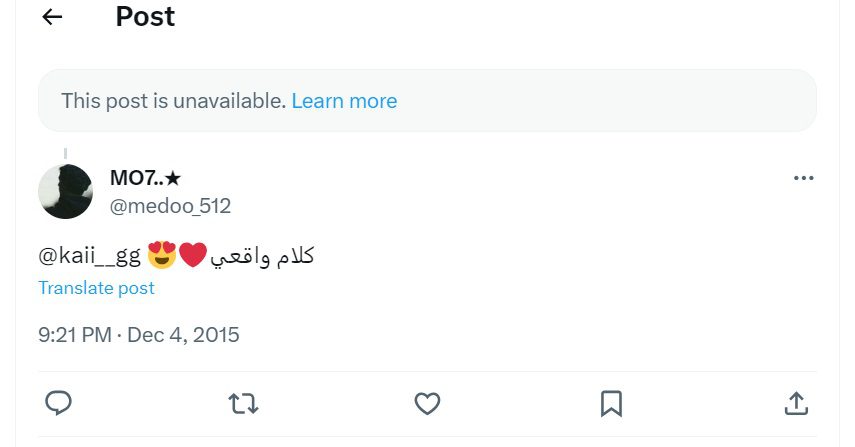
We noticed that when it first appeared, the account handled by @Hh__oorr, then @kaii__gg in November 2015. During this period, conversations directed towards the account, mostly from Yemeni users, were in the feminine form, addressing it as a girl.
Until that time, the name associated with the account was not clear to us. However, with the account handle changing for the third time to @iiaiia__13 in September 2016, some referred to its owner as "Ghala." This was confirmed by a screenshot taken by someone at that time, indicating that the account was named "Ghala Al-Hadramiya."
Interestingly, the account engaged in continuous verbal battles with Saudis on Twitter, using offensive words against them, as shown in some of the ongoing discussions. The account often boasted about being from Hadramout, frequently discussing its civilization. This was one of the reasons for its disputes with the Saudis.
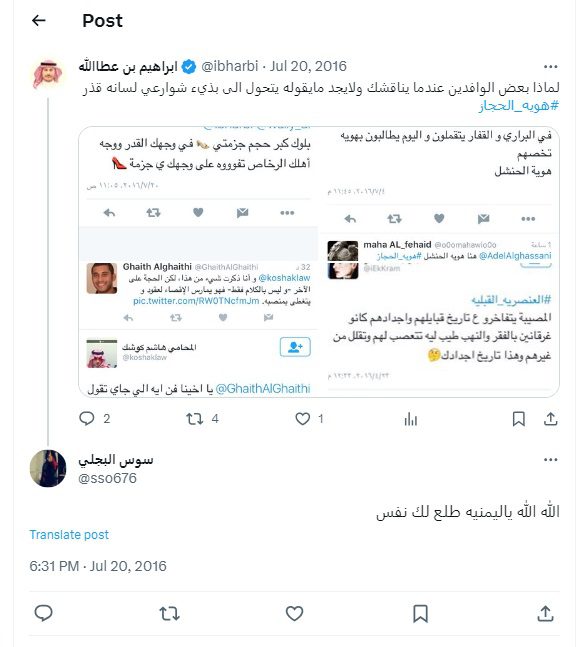
.jpg)
It was evident that Saudi accounts referred to it as "Yemeni" and "immigrant," indicating that the suspicious account might have suggested that it was living in Saudi Arabia. At times, some accounts labeled it as affiliated with the Houthis.


The end of 2017 brought new transformations in the identity of the account. Its owner's name changed to Sara, and its identity shifted from being a "Hadrami writer" to being "Saudi." This change was noticed by a Saudi account, leaving a comment in April 2018, stating: "How are you Saudi and a Hadrami writer, my sister, as the saying goes: 'If you come out of your skin, its smell will be revealed.' In any case, Ben Kahlan did well, bless his face."
The interactions also reveal that until March 2018, the account identified as a "Hashemite Hadrami girl" and, at that time, had a profile picture featuring the former Yemeni president Ali Abdullah Saleh, popularly known in Yemen as Afash, along with Abdul-Malik al-Houthi, the leader of the Houthi group associated with Iran.
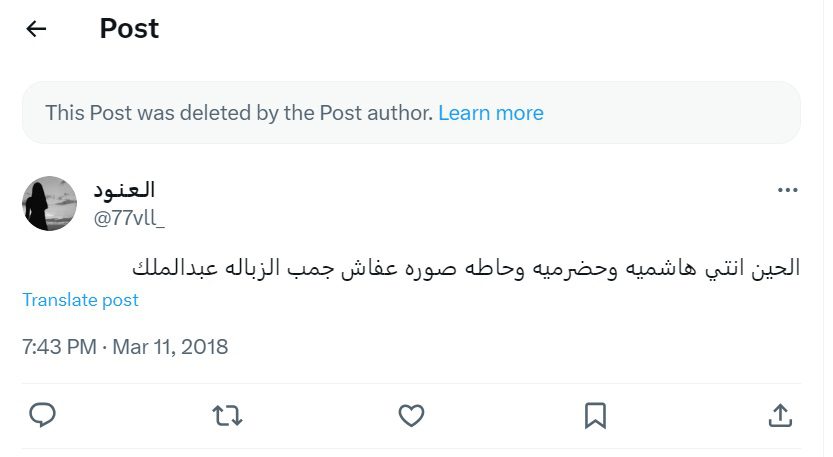
The account maintained this pattern, changing identities and tweeting as a girl, until 2020. In April 2020, the account changed its name and handle to @Columbuos. It's unclear how the account, which now only posts Quranic verses and prophetic sayings after deleting its previous archive, transitioned to Columbuos and who is behind it.
On April 29, 2020, the account posted a prelude tweet saying: "In the name of Allah, the Most Gracious, the Most Merciful. We seek help from Allah and none other. We embark with the motivations of brotherhood and the love of the homeland, defending it. Stay tuned." Around the same time, "Columbuos" launched accounts in his name on other social platforms such as Snapchat, TikTok, and had two YouTube channels.

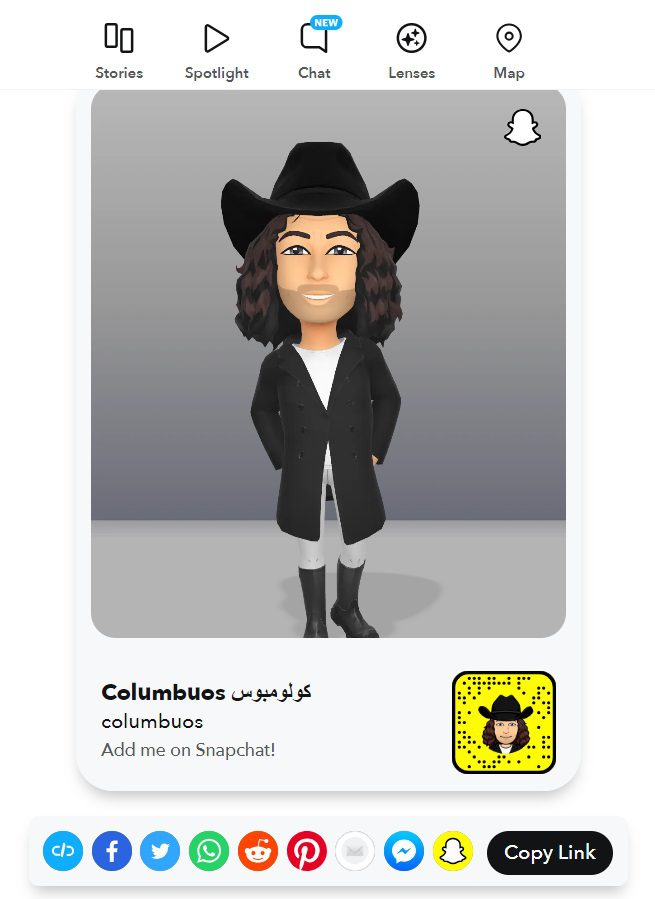
With its new identity, the account started posting on controversial topics, endorsing conspiracy theories, engaging in political propaganda, and actively participating in coordinated hashtag campaigns defending and expressing official Saudi positions. It aligned itself with organized virtual groups.
In addition to focusing on contentious issues between Saudi Arabia and other countries and populations in the region, especially Egyptians and Palestinians, even before the Gaza war, it actively participated in several campaigns advocating for popular boycotts of Lebanon and Turkey, coinciding with diplomatic crises with these countries in recent years. The account also targeted Qatar, Iran, and Islamic political movements.
One of Columbus's initial posts was about Palestine, discussing the "forged document... allegedly written by King Abdulaziz, may Allah have mercy on him, regarding Palestine and the Jews." Following this, Columbus reposted an old recording dating back to 2014, attributed to Omani Foreign Minister Yusuf bin Alawi and the late Libyan Colonel Muammar Gaddafi, to stir controversy about "how they planned to destroy the Gulf Arab unity" with the help of Qatar and Oman. The account had previously been suspended by Twitter for a period in October 2022, citing a violation of its rules.
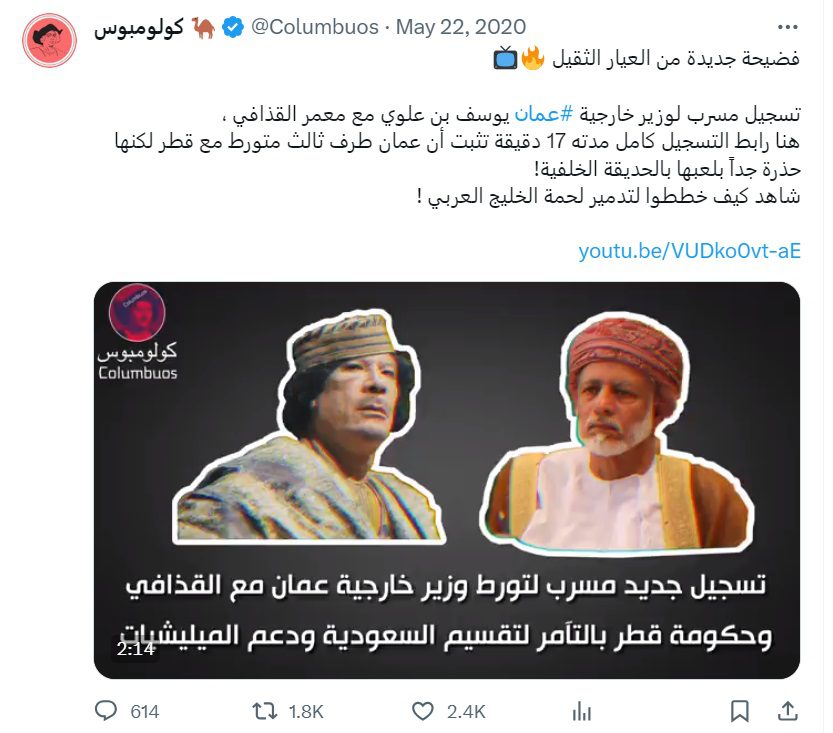
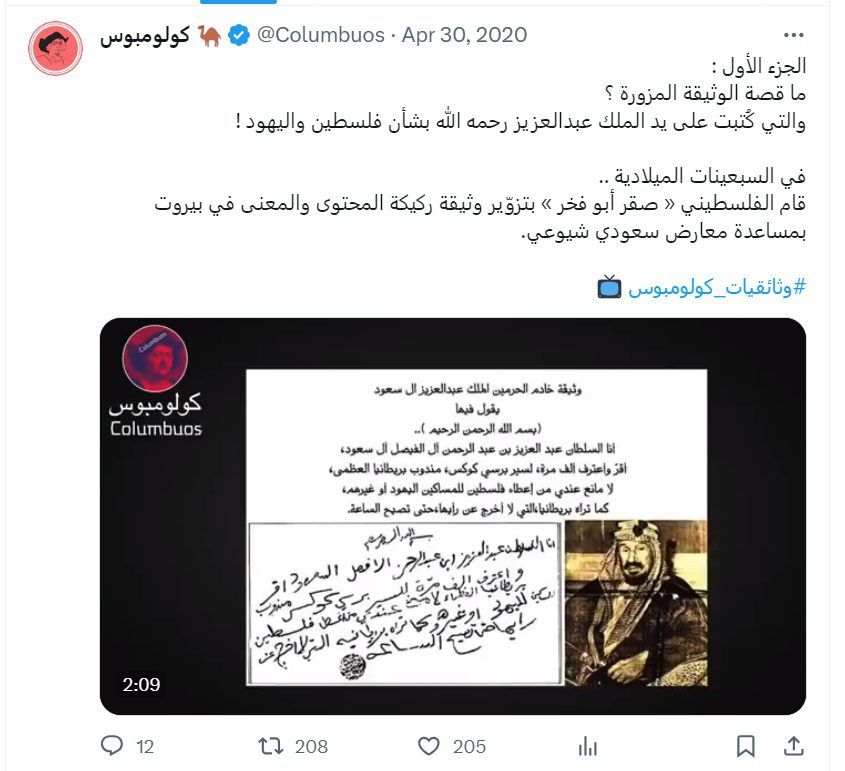
The previous analyses reveal coordinated electronic campaigns attacking Saudi Arabia for organizing the Riyadh Season concurrent with the Israeli war on Gaza. Yemeni accounts played a prominent role in initiating and amplifying campaigns critical of Saudi Arabia, with a significant number of tweets from Yemen using the hashtag #Gaza_eradicated_Riyadh_celebrating.
This hashtag was followed by opposing Saudi campaigns attacking Egypt, spreading the hashtag #Gaza_eradicated_Egypt_celebrating following Mohammed Sallam's refraining from participating in Riyadh Season. The Saudi hashtag #We_are_all_Bayoumi defended Fouad for insisting on participating in the Riyadh Season and criticized the stance of Mohammed Sallam. This was accompanied by a coordinated electronic campaign based on statements from the former president of Zamalek Club, who is close to Turki Al Al-Sheikh, the head of the Saudi Entertainment Authority. The accounts also used archival footage from the internet, presenting it as current Egyptian events, with the purpose of comparing it with the ongoing Riyadh Season events during the Gaza events.
